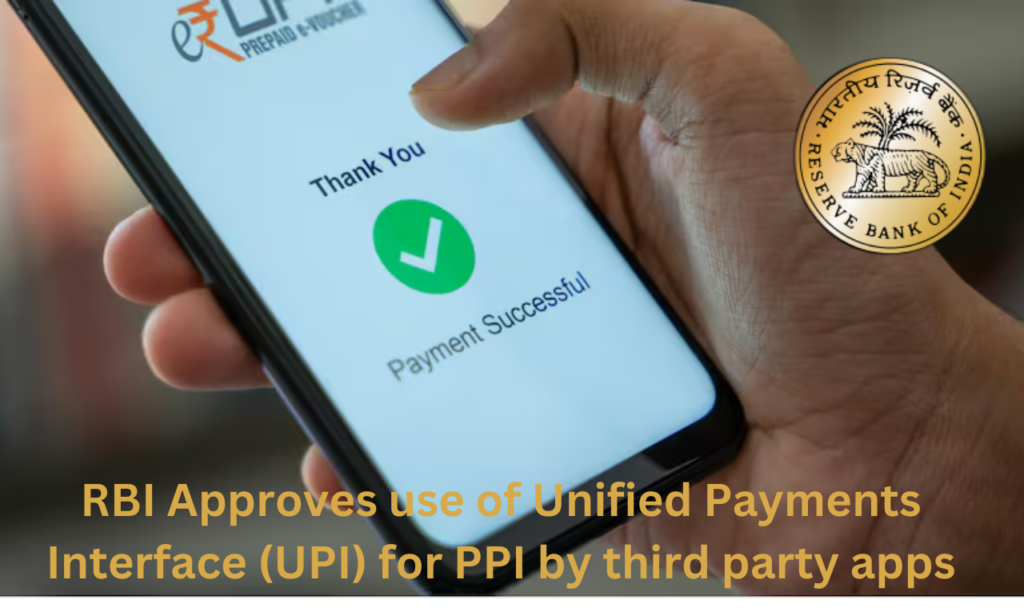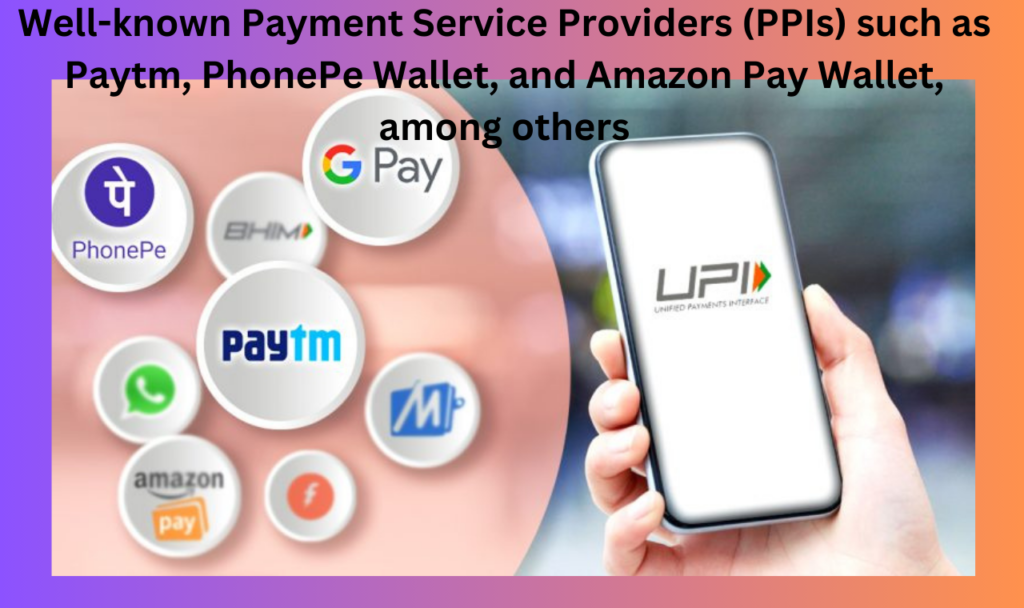RBI has authorised the use of Unified Payments Interface (UPI) for PPI by third party apps
The Reserve Bank of India (RBI) announced on Friday that users of Prepaid Payment Instruments (PPI) are now allowed to perform UPI payments via third-party UPI applications. While UPI transactions between bank accounts can be executed using either the bank’s proprietary UPI app or any third-party application, transactions involving PPIs must currently be processed through the mobile application of the PPI issuer.
This announcement, made in the Statement on Development and Regulatory Policies dated April 5, 2024, aims to improve transaction efficiency and foster interoperability between mobile wallets and the UPI framework.

According to the statement on Development and Regulatory Policies (April 05, 2024), it has been decided to permit UPI payments from and to fully KYC-compliant PPIs through third-party UPI applications. The RBI indicated that this change will allow PPI holders to send and receive UPI payments using third-party UPI mobile applications.
Table of Contents
Also Read:https://coveragezone31.com/isro-pslv-c60-spadex-launch-live-updates-india
This decision will affect well-known Payment Service Providers (PPIs) such as Paytm, PhonePe Wallet, and Amazon Pay Wallet, among others. Additionally, third-party UPI applications like Google Pay and PhonePe will also be influenced by these changes.
The central bank noted, “A PPI issuer shall enable holders of only its full-KYC PPIs to make UPI payments by linking its customer PPIs to its UPI handle. UPI transactions from PPI on the issuer’s application shall be authenticated using the customer’s existing PPI credentials. Such a transaction will, thus, be pre-approved before it reaches the UPI system. A PPI issuer, in its capacity as a PSP, shall not on-board customers of any bank or any other PPI issuer.”

Furthermore, it stated, “A PPI issuer may also facilitate the discovery of its full-KYC PPIs on third-party UPI mobile applications, which, in turn, shall enable such PPIs to be linked to their PSP handle/s. Such UPI transactions from PPIs using third-party UPI applications shall be authenticated using the UPI credentials.”
The implications for UPI users are significant. A prepaid payment instrument (PPI) serves as a financial resource that enables individuals to store money on a card or within a digital wallet for future use. Users can now utilize any third-party application to transfer and receive funds directly into their wallets. Previously, the Reserve Bank of India (RBI) mandated that wallet integration with UPI could only occur through the wallet provider’s application, necessitating user authentication via the wallet’s login credentials.
The RBI has now streamlined this process for prepaid wallet users, permitting transactions through popular UPI applications such as PhonePe, Google Pay, and Paytm.
Under the revised regulations, users can link their fully verified wallets to third-party UPI applications after completing the comprehensive Know Your Customer (KYC) process. This development allows wallet users to perform transactions, including sending and receiving funds, akin to the functionalities offered by traditional bank accounts.

Users can now easily access full-KYC wallets via UPI applications like PhonePe and Google Pay, enabling them to connect their wallets to the UPI framework and authorize transactions using their UPI PIN. However, according to the latest RBI guidelines, wallet providers are not permitted to onboard customers from other banks or wallets through this new integration method.
The Reserve Bank of India’s initiative to permit UPI payments via fully KYC-compliant prepaid payment instruments (PPIs) on third-party applications marks a significant advancement in promoting financial inclusion throughout the nation. This initiative effectively connects PPIs with UPI, thereby improving the accessibility and convenience of digital transactions for millions, allowing users to engage in transactions effortlessly across various platforms, stated Dilip Modi, Founder & CEO of Spice Money.
He further remarked, “For rural populations, where banking facilities may be scarce, this integration signifies a major progress. At Spice Money, we have witnessed the transformative impact of equipping underserved communities with digital resources. This development will enable PPI users—including those utilizing gift cards, digital wallets, or transit cards—to engage more readily in the digital payment landscape. The improved interoperability between PPIs and UPI not only streamlines transactions but also fosters increased trust and security through pre-approved authentication processes.”
Source https://www.businesstoday.in

